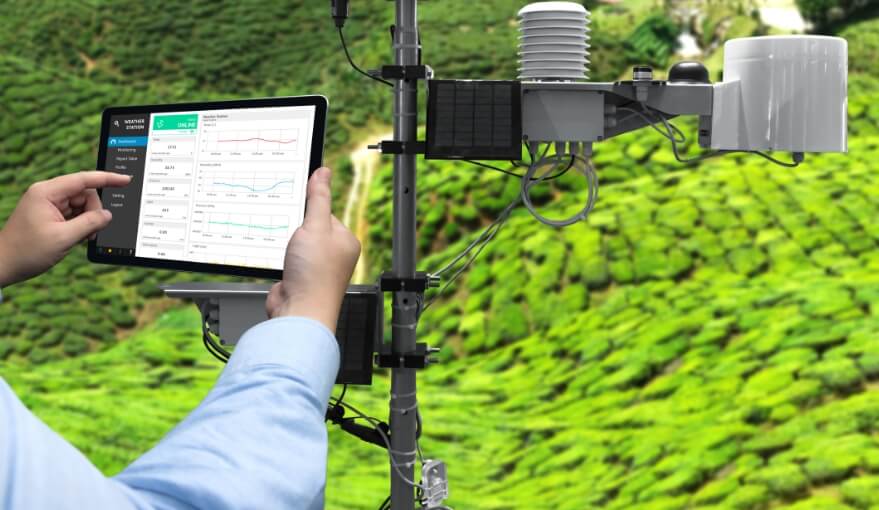Agriculture is without a doubt a branch of industry that depends the most on weather conditions.
What do we offer in the field of Smart Agriculture solutions?
Through a partnership with the Austrian company Pessl Instruments, we, at TeleGroup Slovenia, offer a comprehensive IoT solution for environmental monitoring, disease models, soil moisture, and more.
In addition to the delivery of hardware and software, we design the entire solution, implement meteorological stations in the field, adjust the software in accordance with the type and kind of your land and crops. After implementation, we maintain your system, so that you always have reliable information about all the parameters that affect the success of your agricultural production. From now on you will look at the sky just to rest your eyes!
As we have integrated this solution with our Agrolife platform, now you will control the situation in the field via any smart device in real-time – from insight into where all your weather stations are located and what weather conditions are expected, through monitoring the condition of crops and plant diseases on each plot to information about the status of your equipment.
Cutting-edge iMETOS weather stations are ready for delivery to your field or farm

The most important features
With precise insight into the local weather conditions on your plot, you will never again wonder when to sow, how much to irrigate, when to spray or fertilize, because our weather stations help you make the right decision at the right time. The parameters that you can monitor and the information the system sends to you are:
- — Environmental parameters (precipitation, air temperature, leaf wetness, wind speed, solar radiation, etc.)
- — Frost with wet-bulb temperature real-time alerts
- — Soil moisture with a wide range of probes
- — Hydrology, flood warnings, research plots, and more
It provides hyper-localized data on current weather conditions and combines them with historical data to understand all that affects the condition of your crops on each plot. The system also gives the most accurate weather prediction to better plan your workday or week and optimize agricultural operations.
- — 3 or 7-days Hyper-Local weather forecast data and meteograms with hourly resolution
- — 14-days forecast outlook
- — Output hourly data for multiple forecast variables, including all the important agrometeorological variables (plant protection conditions, spraying conditions, field accessibility, tillage ability, fertilizing efficiency, sowing and harvesting window), daily ET and more
- — Multiple outputs: raw data and images
- — High-resolution weather models by using a multi-model approach
- — Site-specific weather forecast corrected with station data
Devices monitor the soil (moisture, temperature, salinity, presence of nutrients), the plant (dendrometric variations…), the atmosphere (all meteorological variables, from which you can estimate the evapotranspiration), and also the irrigation system (flow, water level, pressure, pH and electrical conductivity of fertilizer…). By combining these parameters with a hyper-localized weather forecast you will know precisely which soil moisture-irrigation strategy to apply on your plot, at exactly the right time when the plants need it the most. Produce more with less.
It allows you to detect the appearance of plant diseases on time, optimize the use of protective agents and spray them only when necessary. Our system covers over 80 disease models for over 40 crops and automatically notifies you on which plot it appeared and which disease model is in question.
The system automatically notifies you of frost and low temperatures in your fields. In this way, we enable producers to take timely agro-technical measures to protect their plants and their production.
What is necessary for the weather station to work?
Internet connection (GSM terrain coverage)
Electricity - the station is powered
by a small battery that is charged
via a solar panel
What do IoT weather stations bring to an agricultural producer?
— Reduction of operating costs
— Better and higher quality yields
— Optimize the use of pesticides, fertilizers, and the irrigation process
— Hyperlocalized weather forecast at the level of individual plots
— Monitoring the health of crops and detecting plant diseases on time
